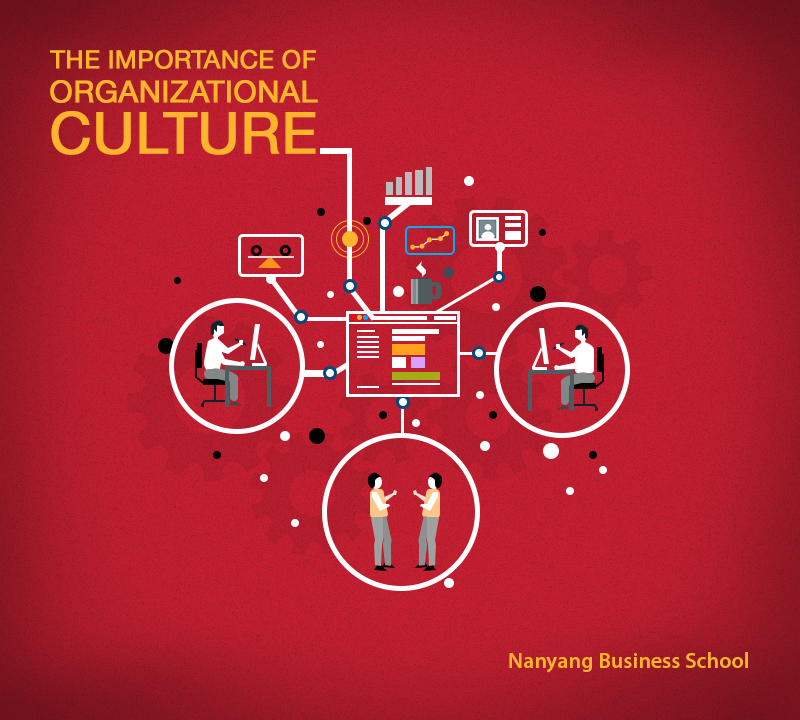It’s the quality that binds the organization together, and prevents it from falling apart; a quality that gives the organization the strength to deal with difficult challenges; a quality that makes it stand out from the rest.
Like individuals, organizations too have a unique personality that we refer to as ‘culture’. It’s an invisible yet powerful force that drives the thoughts and actions of each of its members. It’s a system of shared values, beliefs, and goals.
Organizational culture has a huge impact on the company’s ability to succeed and make it big in the competitive world that we live in today. A company without a tangible culture finds it difficult to tap into the full potential of its employees, and to keep them happy. And, that puts both the organization’s and its people’s well being at risk.
Here are some of the reasons why organizational culture plays such an important role in the success of any business:
- Unity
“It’s not the size of the dog in the fight, it’s the size of the fight in the dog,” Mark Twain had said in one of his famous quotes. An organization, irrespective of its actual size – whether it’s a start-up with 10-15 employees or an organization with a bigger workforce, is strengthened by its unity. The unity results from a solid organizational culture – a set of shared values and principles that the members abide by in every decision that they take. The similarity of thought and action enables the employees of a company to work synergistically, to help each other in their goals, and to stay strong as a group in order to fight against the rival forces.
- Business Success
One organization that has a palpable organizational culture is Google Inc. One look at the Google products and campuses across the globe, few interactions with its employees, and we would know what the company stands for – Creativity and Innovativeness. Building and maintaining Google’s culture requires relentless effort, as Google’s Developer Advocate Don Dodge explains in this blog post. But, the company very well knows that the secret to its success is its people and the culture they create and maintain.
- Stability
Author Daniel H Pink in his book Drive: The Surprising Truth About What Motivates Us talks about the role of ‘Purpose’ in improving the performance of people in the workplace. Lack of purpose and motivation is one of the major reasons why people are often dissatisfied at work and why they quit their jobs and look for greener pastures.
Organizational culture, by its very nature, ensures that the purpose of its members are aligned with the purpose of the organization. And, this compatibility of goals and way of thinking drives the members to perform well, be self-directed, and be loyal to the organization they belong to.
- Sense of Direction
When an organization has laid out its values, beliefs and goals, its employees have a clear direction to work towards. They can discern between right and wrong, important and unimportant and this clarity ensures a focused approach to work, and a productive use of the organization’s time and resources.
- Identity
‘Identity’ and ‘brand image’ emerge from an organization’s culture and its people. Apple’s products wouldn’t be known for their ‘perfection’ and ‘enduring beauty’, had it not been for Steve Jobs’ unique way of approaching the technology business, his emphasis on creating products that weren’t just efficient, but also aesthetically pleasing and immaculately designed. It’s the people who create the organization and it’s the organization that creates the ‘brand image’. And, we know what a big role the identity of the brand plays in how well it’s received by the market and how far it goes.
Interested in exploring the topic of ‘culture’ and ‘group behaviour’ in depth? Nanyang Technological University’s Culture Science Institute (CSI) holistically investigates cultural issues of national and global importance, from brain-based, cognitive, evolutionary, behavioural and life science perspectives. To know more, visit http://www.culturescienceinstitute.com/.
Additionally, the Nanyang MBA at NBS offers a compulsory module on Leading People Globally. Designed to help you with theoretical and a practical understanding of what is required to lead people in organizations, it provides you with detailed insights on an organization’s perspective on talent management.
The programme’s Business Study Missions (local or overseas) also help build a candidate’s cultural intelligence, exposing them to different business, cultural, economic and political environments. It prepares individuals for the global workplace by honing their skills in managing business in different environments.
Have thoughts on the role of organizational culture? Don’t forget to share them in the comments below!

You must be logged in to post a comment.